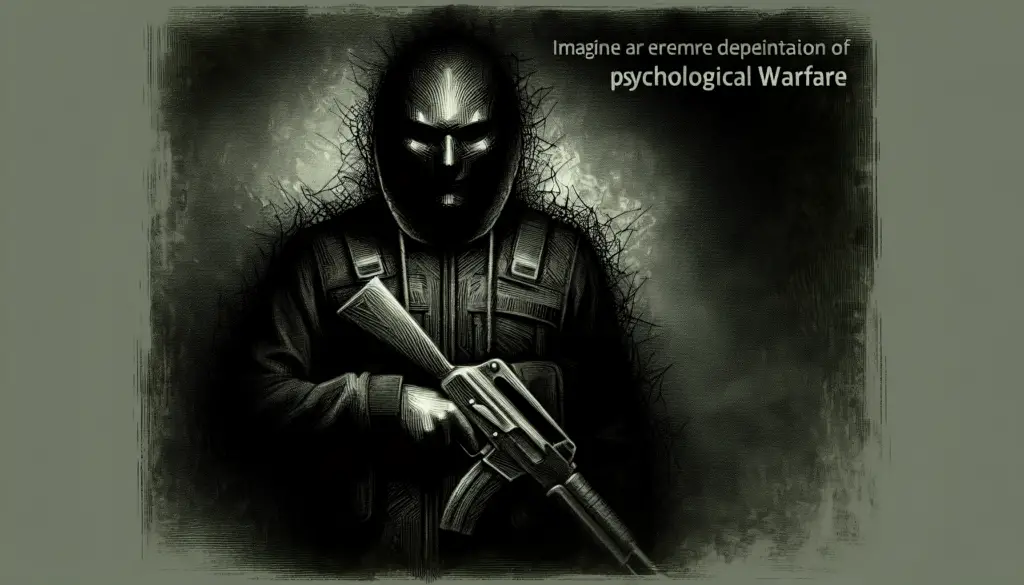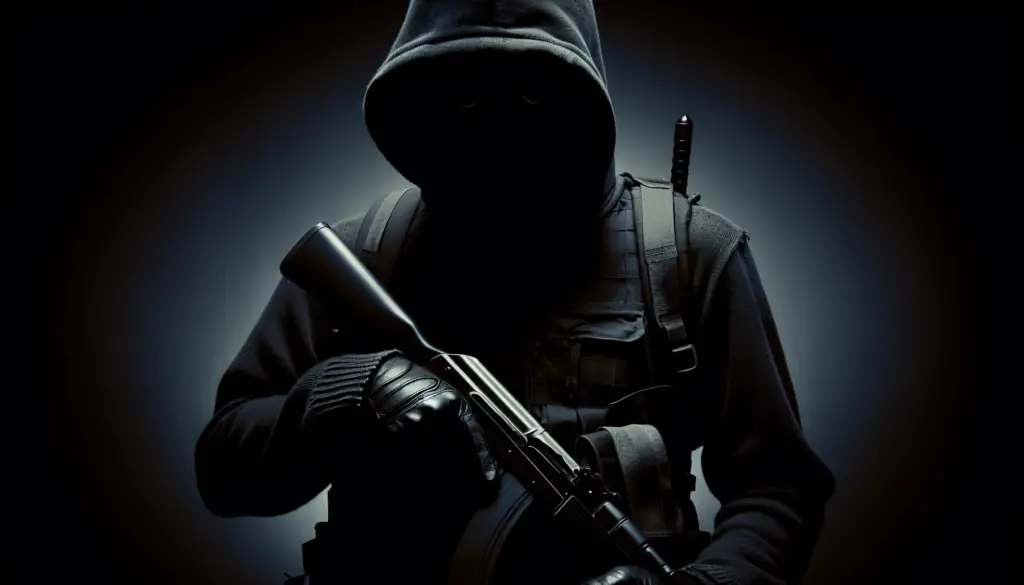Understanding the Importance of Psychological Warfare in Survival Situations
In any survival scenario, the ability to maintain a strong mental state is just as crucial as physical preparedness. Psychological warfare plays a significant role in survival situations, influencing not only your own mindset but also the behavior of others around you. This article will delve into the importance of psychological warfare in survival situations and how you can harness its power to increase your chances of making it out alive.

Why is Psychological Warfare Important in Survival Situations?
When faced with a life-threatening situation, fear and panic can quickly take hold of your mind, clouding your judgment and hindering your ability to make sound decisions. Psychological warfare involves strategies and tactics that help you combat these negative emotions, stay focused, and maintain a positive mindset. By understanding the importance of psychological warfare, you can effectively overcome mental barriers and increase your resilience in survival situations.
The Impact of Psychological Warfare on Survival Mindset
The mindset you bring into a survival situation can greatly influence your chances of making it out alive. Psychological warfare helps you cultivate a survival mindset that is characterized by determination, adaptability, and a strong will to survive. By utilizing psychological warfare tactics, you can train your mind to stay calm under pressure, think critically, and make effective decisions based on the resources available to you.
Techniques for Harnessing Psychological Warfare in Survival Situations
-
Visualization and Mental Rehearsal: Imagine various survival scenarios and envision yourself successfully overcoming them. This practice helps build confidence, prepares you for unexpected challenges, and reinforces a positive mindset.
-
Positive Self-Talk: Replace negative thoughts with positive affirmations and self-encouragement. Remind yourself of your strengths, capabilities, and previous successes to boost your morale and confidence.
-
Stress Management: Develop coping mechanisms to deal with stress, anxiety, and fear. Techniques such as deep breathing, meditation, and focusing on the present moment can help you maintain a clear mind and make rational decisions.
-
Building Resilience: Embrace setbacks and failures as learning opportunities. Cultivate a resilient mindset that thrives in adversity, bounces back from challenges, and remains flexible in changing circumstances.
Influence of Psychological Warfare on Group Dynamics in Survival Situations
In a group survival scenario, psychological warfare not only affects individual mindset but also plays a crucial role in shaping group dynamics. The ability to effectively communicate, collaborate, and influence others can significantly impact the cohesiveness and success of a survival group. By understanding the influence of psychological warfare on group dynamics, you can foster teamwork, resolve conflicts, and build trust among team members.

Strategies for Leveraging Psychological Warfare in Group Survival Scenarios
-
Effective Communication: Establish clear channels of communication within the group to share information, coordinate actions, and make collective decisions. Open and honest communication builds trust, fosters unity, and enables effective teamwork.
-
Conflict Resolution: Address conflicts and disagreements within the group promptly and constructively. Utilize active listening, empathy, and compromise to resolve issues, maintain harmony, and prevent conflicts from escalating.
-
Leadership Development: Identify natural leaders within the group and empower them to take charge in critical situations. Encourage leadership qualities such as decisiveness, empathy, and communication skills to ensure effective decision-making and coordination.
-
Team Building Activities: Engage in team-building exercises and activities to strengthen bonds, foster camaraderie, and enhance cooperation among group members. Create opportunities for collaboration, problem-solving, and mutual support to build a resilient and cohesive survival team.
Case Studies: Examples of Psychological Warfare in Real-Life Survival Situations
-
Apollo 13 Mission: During the Apollo 13 mission to the moon, astronauts faced a life-threatening crisis when an oxygen tank exploded, jeopardizing their return to Earth. Through effective communication, teamwork, and problem-solving skills, the crew and mission control worked together to devise innovative solutions and successfully bring the astronauts back home safely.
-
Chilean Miners’ Rescue: In 2010, 33 miners were trapped underground in a collapsed mine in Chile for 69 days. Despite the harrowing conditions and limited resources, the miners maintained a sense of hope, unity, and resilience through organized leadership, regular communication with the outside world, and mutual support among themselves. This strong psychological warfare mindset helped them endure the ordeal and eventually be rescued.
Conclusion: Embracing the Power of Psychological Warfare in Survival Situations
In conclusion, the role of psychological warfare in survival situations cannot be underestimated. By understanding its importance, harnessing its tactics, and leveraging its influence on both individual and group dynamics, you can significantly increase your chances of survival in the face of adversity. Cultivate a strong survival mindset, foster effective communication, build resilience, and embrace leadership qualities to navigate through challenges, overcome obstacles, and emerge stronger on the other side. Remember, your mind is your most powerful tool in a survival scenario – use it wisely.
